I read this NY Times article on cyber warfare with interest, if not alarm. By nature, I prefer the “wondering monk” approach to security — i.e., accumulate nothing that anyone else would value and avoid attachments to physical locations — to the fortress mentality. As a locksmith once told me, locks serve mainly to reassure those who install them, and to deter bumbling amateurs. Professionals get in to where they want to go. So rest assured, our systems will be hacked, and even if they aren’t, any secrets that appear on our computer screens are vulnerable to side-channel leaks. On […]
North America Archive
Free Newsletter
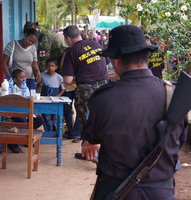
The World Health Organization on Monday raised its alert level for swine flu, edging the body closer to declaring a flu pandemic, while the death toll in Mexico, where the disease originated, neared 150. Half a dozen countries, including the United States, have identified swine flu cases, likely vectored by air travel. Governments across the planet are bracing for a full-blown pandemic that could claim thousands of lives. Among U.S. agencies, the Pentagon could arguably play a leading role in combating the disease. Recent emphasis on humanitarian assistance and disaster relief has prepared the military for a global public health […]

The release of previously classified, Bush administration legal opinions analyzing whether “harsh” interrogation techniques would violate legal prohibitions against torture has reopened a moral and ethical debate about the U.S. response to the Sept. 11 terror attacks. It is certainly appropriate to question whether the measures adopted were consistent with the traditions of the nation, or whether they would even work. But there is no criminal charge for acting immorally, for making decisions contrary to our country’s principles or for choosing an ineffective intelligence gathering technique. At its core, then, the underlying issue that advocates for the criminal investigation and […]
First thing I thought after catching John Woo’s new mega-period epic, Red Cliff, this weekend was, I wonder why I haven’t read any clever blog reviews discussing the film’s obvious subtext on America’s recent military adventurism yet. A few google searches later and I learned that the film not only hasn’t yet been released Stateside, it’s got no U.S. distributor. That, folks, is crazy. Either someone in Hollywood is really stupid, or someone in China is really greedy. (With regard to this movie, I mean.) To put it very simply, this is a great martial arts war flick, with a […]
I’m not going to have a whole lot to say about President Barack Obama’s first hundred days in office, since we invited an impressive group of foreign policy luminaries to do that for us in next Tuesday’s feature issue. But I will say this: Getting people with a hardened negative opinion about the U.S. to withhold judgment and instead pay attention to the message coming out of Washington is, in itself, a tangible result: – U.S., Cuban diplomats meet? Check.– Evo Morales impressed? Check.– Syria less mistrustful? Check.– Hamas keeping its ear to the ground? Check. Now, if you look […]
This hasn’t been a particularly good week for anyone concerned by the creeping militarization of foreign policy in general, and development aid in particular. When President Barack Obama announced his Afghanistan strategy last month, a lot was made about the “diplomatic surge” element — roughly a thousand civilian posts to boost development work in the country. I remember thinking at the time that an increase of 1,000 civilians didn’t stack up so well with the increase of 21,000 troops that was announced at roughly the same time. But at least it was a start. Only trouble is, the NY Times […]
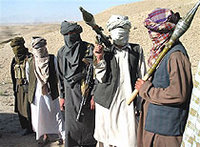
Few took issue with Secretary of State Hillary Clinton’s bold assertion on Wednesday that the Pakistan-based Taliban pose a “mortal threat” to the United States. The stakes, of course, are high. The Taliban provided safe haven to Osama bin Laden prior to the 9/11 attacks, and could very well be doing so now. Since fleeing Afghanistan following the U.S. invasion in 2001, they have mounted stubborn insurgencies on both sides of the border that separates Afghanistan from Pakistan’s tribal areas, and have now established footholds in formerly secure parts of Pakistan. The fact that Pakistan is a nuclear-armed power makes […]
I originally thought of this week’s selection — posted a day late — in relation to the elections going on in South Africa. But then Hampton’s post from yesterday made me think of it from a different angle. Ina lot of ways I agree with Hampton that any attempt to punish theuse of torture would risk being both compromised by politics andhampered by the complexities of parsing who should be held responsiblefor what. That’s what I was referring to when I saidthere would be weaknesses to both criminal prosecutions and a truthcommission. In other words, I acknowledge the possibility that […]
Torture. It’s tough enough to compose the word on the keyboard without having to put it in the same sentence as the United States. But it seems increasingly clear that the United States did practice torture as part of official policy. The case made in these two Wall Street Journal articles contesting that conclusion (here and here) essentially rests on the idea that a perfect simulation of torture — one that creates the psychological effect on the victim that he is in fact being tortured — can somehow be distinguished from the act itself. But that argument would make mock […]
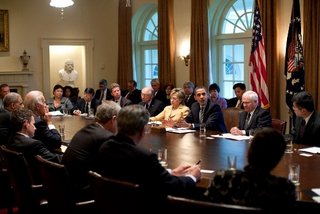
As the IMF and the Joint World Bank-IMF Development Committee meet in Washington this weekend, they will undoubtedly be discussing what most Americans are only dimly aware of: The recession is a global national security problem. The American people must understand that the economic crisis will be manifested not only in lost jobs and incomes — it will be felt in enhanced dangers to U.S. national security and homeland security. In February, Director of National Intelligence Adm. Dennis C. Blair told the Senate Select Committee on Intelligence the top national security threat facing the U.S. is the economic crisis. “Besides […]

The time has come, once again, to castigate the United Nations. In response to North Korea’s test-missile firing, the Security Council remained deadlocked in its anachronistically Cold War ways and couldn’t muster a full resolution. Instead, it passed a presidential statement, which the U.S. has since had to argue is even legally binding. North Korea has since expelled U.N. weapon inspectors and said it will again pursue weapons-grade plutonium. This comes on the heels of a general failure of the Human Rights Council, a missing-in-action secretary general and the U.S. boycotting the U.N.-hosted World Conference on Racism in Geneva this […]
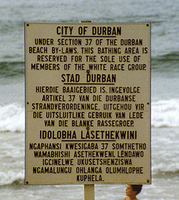
Only a few days remain before the opening of the United Nations anti-racism conference in Geneva, and maneuvering surrounding the controversial event is reaching a fever pitch. The stated goal of next week’s Durban Review Conference, as it is officially named, is to “evaluate progress” in the global fight against racism since the U.N.’s 2001 anti-discrimination conclave held in Durban, South Africa. That original Durban meeting turned into an embarrassing fiasco for the U.N., prompting Western nations to brace for a difficult and possibly unsuccessful effort to keep the “Durban II” gathering in Geneva from becoming another propaganda tirade in […]
Roughly 47 years after having banned Cuba from the Organizationof American States, Latin American leaders are angling to reinstate theisland nation, despite the fact that it lacks the democraticcredentials spelled out in the OAS charter. The effort is aprominent storyline heading into the April 17-19 Summit of the Americasin Trinidad and Tobago, where 34 leaders from the hemisphere will meetto discuss the global economic crisis, energy policy and securityissues, among other things. But the meeting’s narrative also includesPresident Barack Obama’s first opportunity to redefine U.S.-LatinAmerican relations, which took a backseat under former President GeorgeW. Bush. “The perception coming up from […]
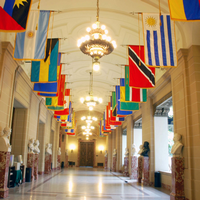
Delegations from across the Western Hemisphere will descend upon the twin island Caribbean nation of Trinidad & Tobago this week for the fifth Summit of the Americas. A hemispheric agenda on energy figures prominently among the issues they will be addressing. For months, the summit offered the hope of a new, more positive, approach to coordinated regional energy policy. But the array of financial challenges facing the global economy has since divided the attention of policymakers. Now, prospects for comprehensive dialogue on energy security in the Americas can only be described as diminished. There is still a chance for the […]
The current global financial crisis is unique in that, unlike most previous crises — which started in the periphery of the world economy, and whose deep and long-lasting impacts were limited to isolated parts of the globe — today’s crisis is rooted in Wall Street, at the heart of the globalized market, from where it has grown and spread worldwide. As a result, powerful, globalized economies have taken the first and hardest punches. Although still a bit groggy, they are now struggling to get back on their feet. But while economists discuss how and when economies will emerge from this […]
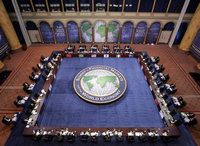
As the world economy stares down the most severe crisis it has seen in nearly a century, the International Monetary Fund (IMF) finds itself positioned somewhere between danger and opportunity: Danger lurks in emergent alternatives to the fund; opportunity lies in reform. Yet, reform requires change, and change does not come easily in the realm of international politics. Invariably, it creates winners and losers. The United States and Europe have long been the beneficiaries of the international financial institutions crafted during the waning hours of World War II. But the world of today is a far cry from that of […]
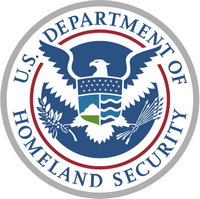
As if terrorists, drug cartels and rogue nuclear states weren’t enough to worry about, the United States is now under cyberattack. Spies from China, Russia and elsewhere have broken into the country’s electrical grid, gathering intelligence and perhaps even planning for an unprecedented blitz: buckling the country’s energy infrastructure. Worried, aghast and surprised? Of course. But in another sense, the report falls in line with the rapidly transforming nature of international threats: What yesterday seemed inconceivable is today commonplace. Some scoffed when former Secretary of Defense Donald Rumsfeld talked about the difference between “known unknowns” and “unknown unknowns.” But from […]
